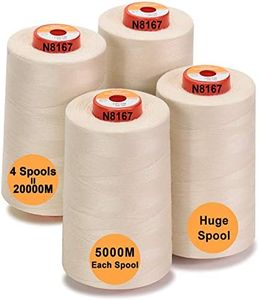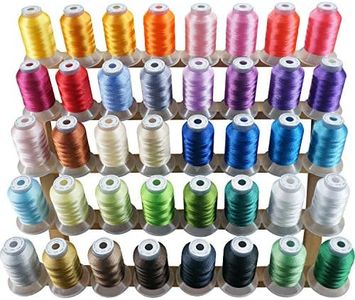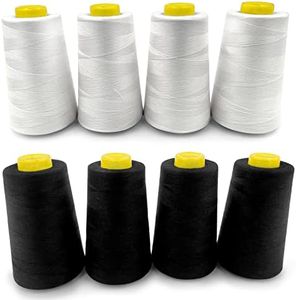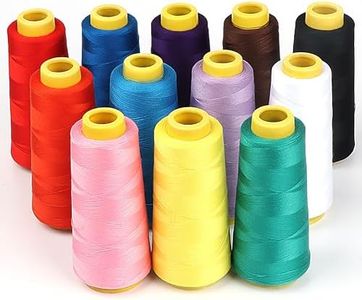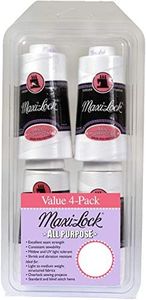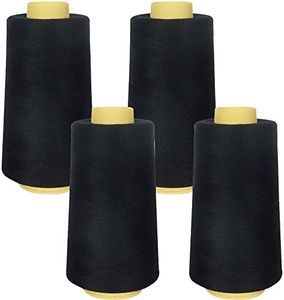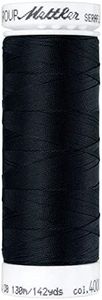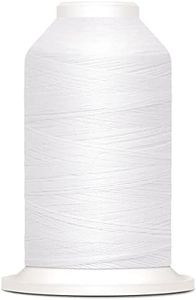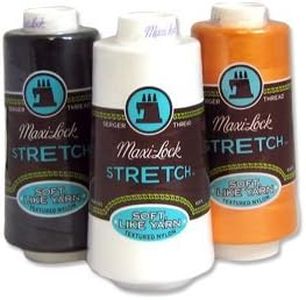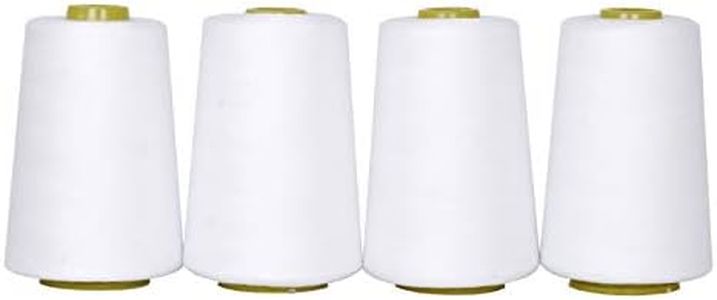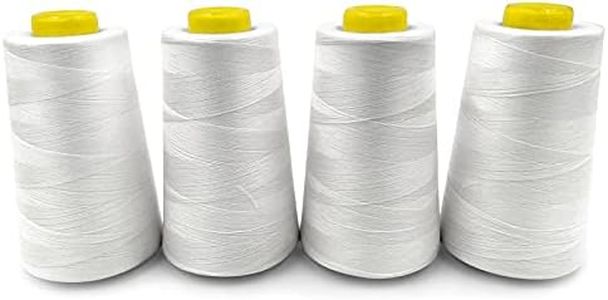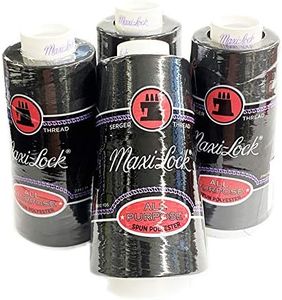We Use CookiesWe use cookies to enhance the security, performance,
functionality and for analytical and promotional activities. By continuing to browse this site you
are agreeing to our privacy policy
10 Best Serger Threads
From leading brands and best sellers available on the web.By clicking on a link to a third party's website, log data is shared with that third party.
Buying Guide for the Best Serger Threads
When selecting serger threads, you're choosing the backbone of your serging projects. The right thread will not only affect how your finished fabric looks, but also how strong, stretchy, and durable your seams are. Understanding key specs will help ensure you buy threads that make sewing smoother and your projects come out just the way you want.Thread MaterialThread material refers to what the thread itself is made from, such as polyester, cotton, nylon, or blends. This is important because different materials have distinct properties—polyester is strong and less likely to shrink, cotton is soft and has a natural feel, while nylon adds stretch and flexibility. To navigate your options, think of polyester as the all-purpose choice, great for most fabrics; cotton for natural fibers or quilting; and nylon for lighter, stretchy, or lingerie fabrics. Choose a material that matches your fabric type and the use of your finished project. If you're sewing garments meant to stretch (like activewear), favor something with stretch like nylon or polyester, while heirloom projects or quilting might do better with cotton.
Thread WeightThread weight tells you the thickness of the thread. This matters because thicker threads can create visible seams and add strength, whereas finer threads help make your seams nearly invisible. Thread weights for serger threads are often labeled in numbers, with higher numbers usually meaning finer threads (for example, 40 wt is finer than 12 wt). For most everyday serging on medium-weight fabrics, a medium-weight thread like 40 wt is versatile. If you want delicate seams for lightweight fabrics, pick a higher weight (finer) thread. For heavy fabrics or decorative finishes, a lower weight (thicker) thread will stand out more and hold sturdy seams.
Thread FinishThread finish refers to how the thread is processed after it's made. Common finishes include mercerized and soft (or non-mercerized). Mercerizing makes cotton threads shinier and stronger, while a soft finish keeps the thread more matte. This affects the appearance and durability of your seams. If you want extra sheen, or you're after strong seams that resist breakage, a mercerized thread is ideal. For more understated or softer seams, a soft finish is suitable. Choose based on the effect you want on your finished seams and whether durability or shine is a higher priority.
Thread StretchThread stretch means how much the thread can extend before snapping. This is crucial if you are serging knits or fabrics that will be pulled or stretched during use, like sportswear or underwear. Non-stretch threads work well for stable, woven fabrics, while threads with some stretch are recommended for knits and activewear. Think about how much stretch your fabric will undergo; match the thread's stretch to the needs of your project for seams that will move with the garment rather than break.
Spool SizeSpool size is simply how much thread comes on one cone or spool. Sergers often use a lot of thread quickly, especially when using multiple cones at once, so having enough thread is important. Smaller spools are good for sampling or if you sew occasionally, while larger cones are more efficient for frequent sewing or large projects. Consider your average project size and sewing frequency; pick large cones if you sew a lot, or smaller spools for occasional use to avoid waste or thread going stale.
Color FastnessColor fastness means how well the thread’s color holds up to washing, sunlight, and wear. Good color fastness ensures your seams won’t fade or bleed after you finish your project or wash it. If your sewing involves garments or items that will be washed often or used in sunlight, prioritize threads labeled as colorfast. Think about the end-use; for display or delicate items, slight fading may not matter, but for clothing and linens, strong color fastness is best.
